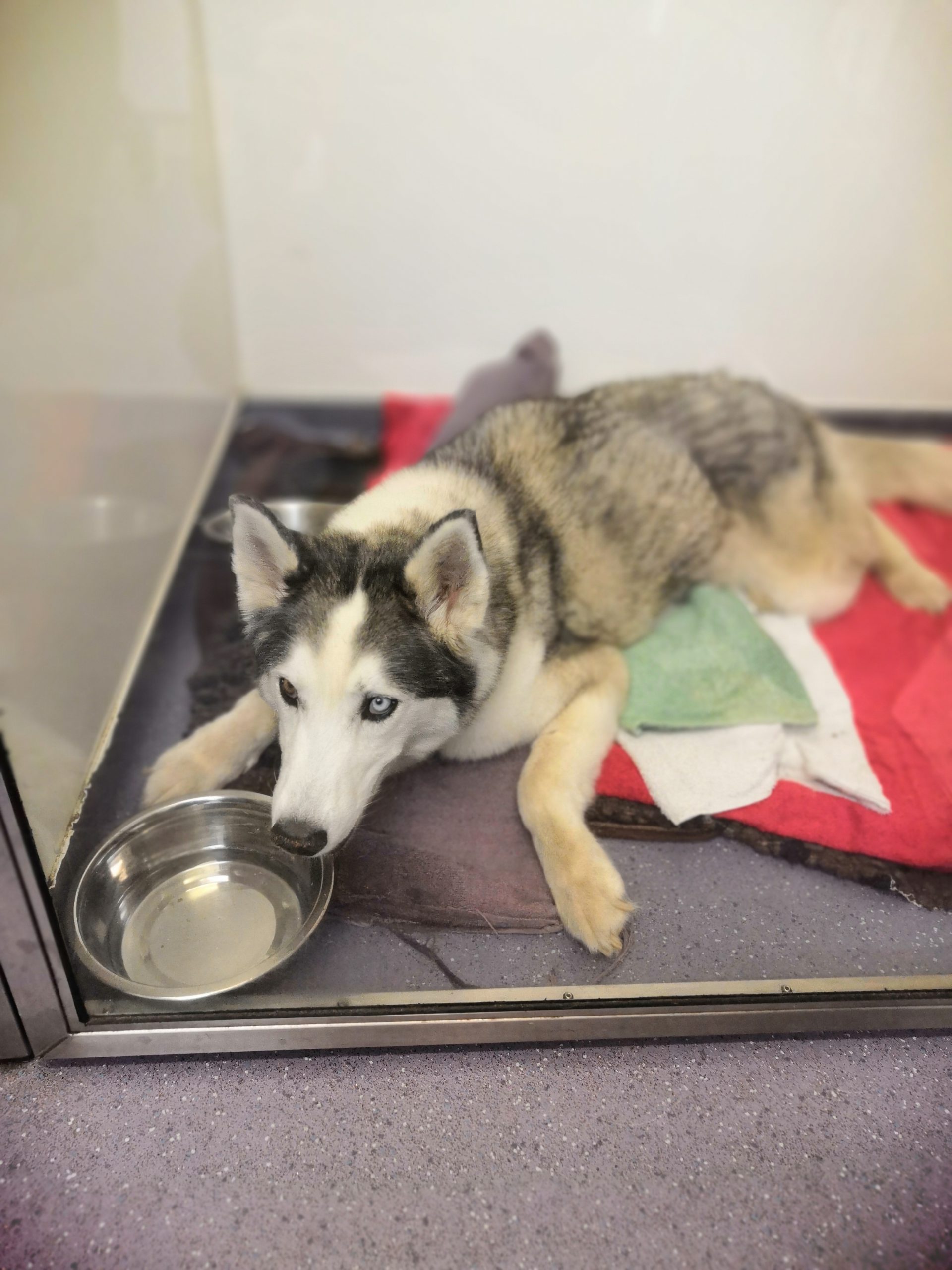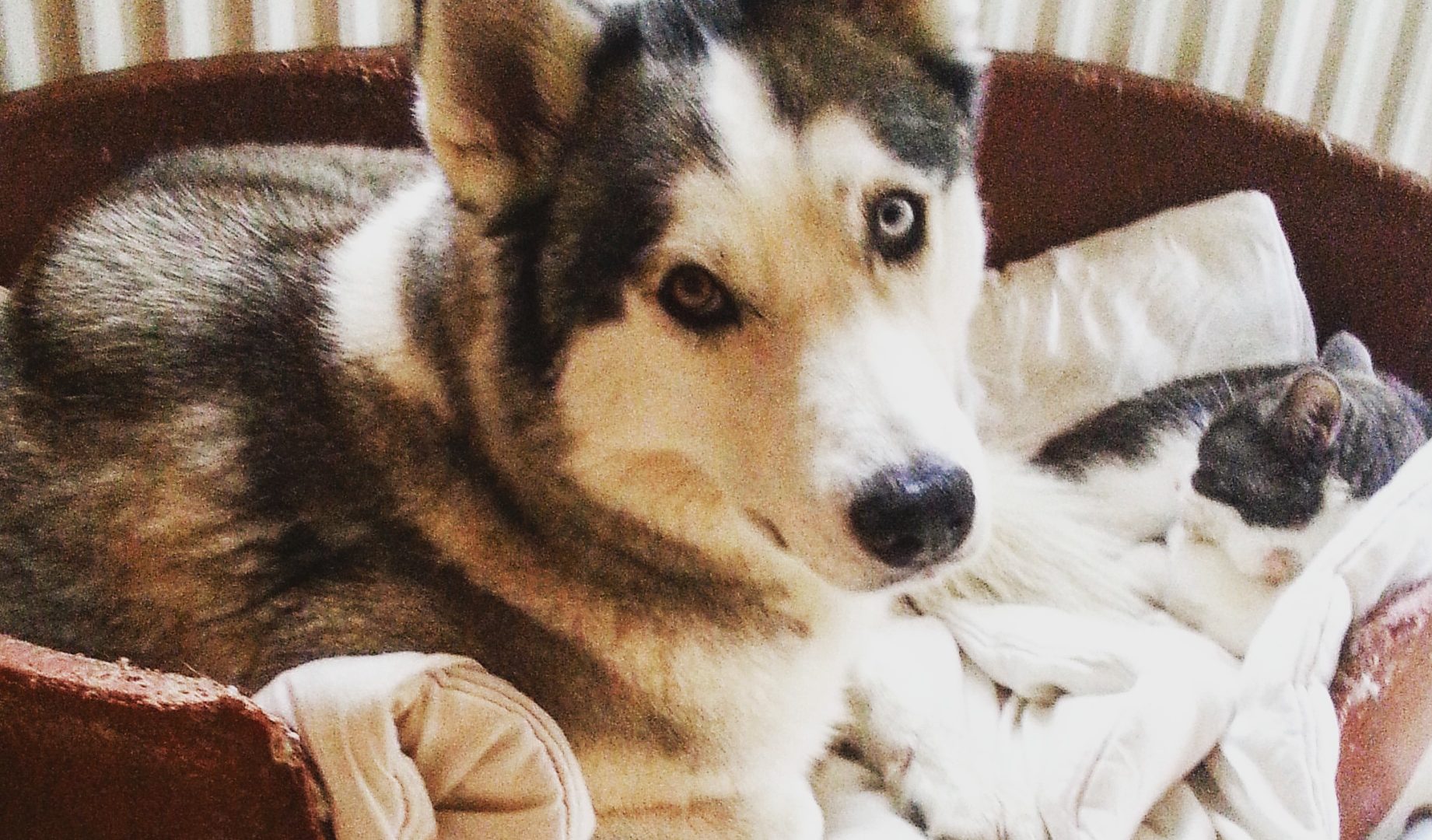A PORTSMOUTH veterinary practice has urged dog owners to be alert to the signs of lungworm following the death of a husky.
Staff at Sanctuary Vets believe Breeze may have contracted the potentially deadly disease after ingesting water that had been infected by lungworm – a type of parasitic worm which lives in the heart and blood vessels that supply the lungs.
Breeze’s owner, Aimée Crockford had noticed a change in his normal behaviour as he seemed tired and wasn’t pulling on his lead as he often would when out for walks. He had also coughed up blood on one occasion.
Ms Crockford took Breeze to Sanctuary Vets’ practice in Farlington where the veterinary team examined him and advised chest x-rays and a blood test, with results making them suspicious of lungworm.
Breeze was treated for lungworm and with antibiotics in case of secondary infection. Unfortunately, the eight-year-old was unable to fight off the disease and died a few days later.
Vet Claire True, who treated Breeze, said: “Generally dogs contract lungworm after eating slugs or snails that carry the larvae, however they can also come into contact by eating grass or drinking from puddles where the larvae has spread to.
“Sadly, it’s likely Breeze may have ingested the larvae when out on a walk and this would have developed in his lung area leading to the cough.
“His owner is understandably devastated to lose her beloved husky, but lungworm can go unnoticed for quite some time as the initial symptoms can be hidden.
“There are preventive medications that owners can get from their vets to try and reduce the risk of infection.”
While traditionally found in the south of England and Wales, Lungworm is now reported to be endemic throughout much of the UK. Dogs of all ages and breeds are at risk of infection.

Prevention is the key and there are some simple measures that dog owners can take. The main one is to be aware of the threat of slugs, snails and frogs which can all carry the lungworm larvae.
An interactive UK map of lungworm hotspots is available at www.lungworm.co.uk. This allows people who search it to input their postcode and view logged cases of lungworm within a set distance from their home. The website reports 10 cases in the PO1 Portsmouth postcode.
Aimée Crockford, who also has an Akita dog called Diego, said: “Breeze was the best pet. He loved going for family walks and would often be swimming in rivers or the sea.
“He was a bit of scavenger, always looking to find bits to eat like grass and leaves, and I guess it was this habit that may have led to him eating something infected.
“We miss him terribly and I would urge owners to keep a close eye on what their dogs are eating when outside and to treat them with preventative medicine for lungworm.”
For advice, or if you suspect your dog has eaten something it shouldn’t have, Sanctuary Vets advises contacting your vet immediately.
For media enquiries, please contact Mark Pearson, VetPartners PR and Communications Manager, on 01733 352200 or email mark.pearson@vetpartners.co.uk

